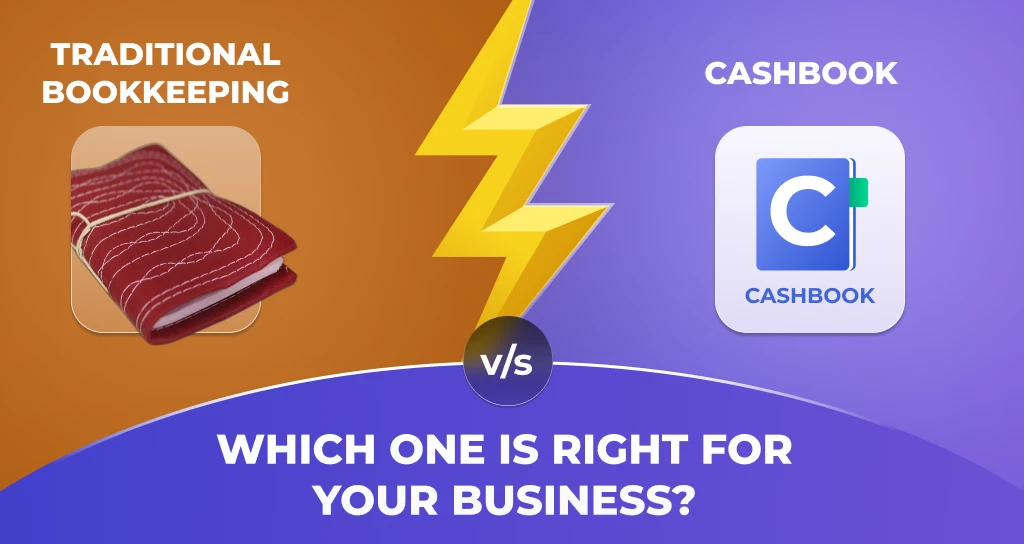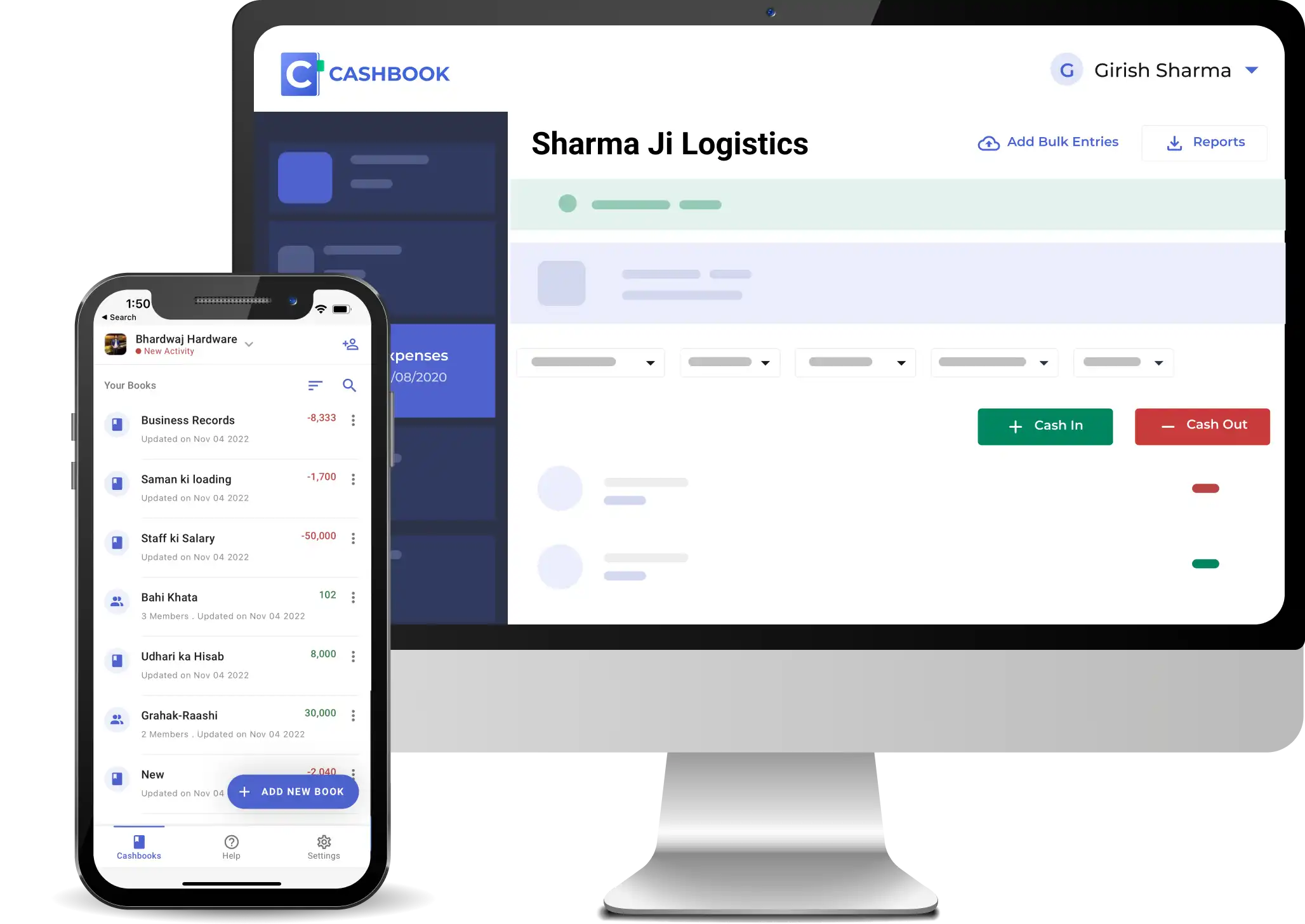Introduction
In today's fast-paced digital era, businesses are constantly seeking ways to streamline their financial processes and improve efficiency. One area that often undergoes transformation is bookkeeping. With the advent of technology, traditional bookkeeping methods have faced competition from modern alternatives.
In this blog post, we will compare Cashbook v/s Traditional bookkeeping, exploring their differences, benefits, and considerations, to help you determine which approach is the best fit for your business.
Understanding Traditional Bookkeeping:
Traditional bookkeeping involves manual recording and organization of financial transactions using ledgers, journals, and physical documents. Here are some key aspects of traditional bookkeeping:
a. Manual data entry: Transactions are recorded by hand, which can be time-consuming and prone to errors.
b. Paper-based records: Receipts, invoices, and other financial documents are stored physically, requiring physical storage space.
c. Time-intensive reconciliation: Reconciling bank statements and cross-referencing transactions can be a lengthy process.
Introducing Cashbook:
Cashbook is a modern bookkeeping system that leverages technology to simplify and automate financial record-keeping. Here are some features and benefits of using a CashBook system:
a. Digital automation: Cashbook software automates data entry, reducing the chances of errors and saving time.
b. Real-time updates: With Cashbook, you can have instant access to up-to-date financial information, providing valuable insights for decision-making.
c. Streamlined reconciliation: Cashbook systems can automatically reconcile bank statements, reducing the need for manual matching and cross-referencing.
d. Track all your online & offline transactions together: Bank PassBook feature helps you maintain a payment tracker for all your online transactions automatically. It scans SMS information to help you organize your income and expenses and you can easily transfer online entries from bank passbooks to your cashbooks
d. Added Benefits: Cashbook systems excel at handling the growing demands of businesses. Unlike traditional bookkeeping, Cashbook offers:
- Scalability: As your business expands, Cashbook systems can easily accommodate increased transaction volumes and complex financial operations.
- Time savings: The automation capabilities of CashBook significantly reduce the time spent on manual tasks, freeing up resources for more strategic activities.
- Improved efficiency: With streamlined processes, Cashbook systems minimize redundancies, optimize workflows, and enhance overall operational efficiency.
- Reporting & analysis: It is effortless to obtain personalized reports in PDF or Excel format by specifying criteria such as date range, category, payment mode, search term, and more. Here, you can look at detailed reports of your transactions and easily share them with clients & business partners
The Hybrid Approach:
In some cases, a hybrid approach combining both traditional and Cashbook methods can be an optimal solution. This allows you to leverage the benefits of automation while maintaining certain manual controls or processes specific to your business requirements.
Making the Right Choice:
When choosing between traditional bookkeeping and Cashbook systems, consider the significant advantages that CashBook offers:
a. Evaluate the scalability of your business and the potential for growth in transaction volume and complexity.
b. Consider the time and resource savings that CashBook automation brings, allowing your team to focus on strategic initiatives.
c. Factor in the long-term cost savings and improved accuracy that Cashbook systems provide.
Effortlessly handle all your expenses, transactions, and payments with CashBook, a user-friendly business expenses app.






